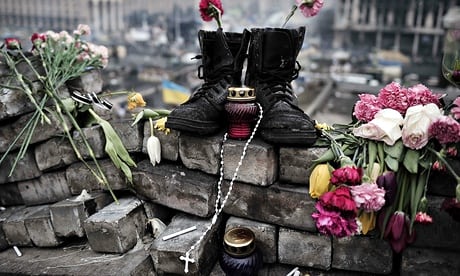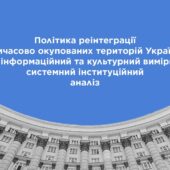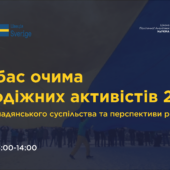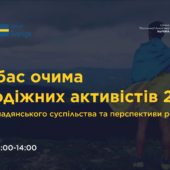Haran characterised the events of the tumultuous past three months as a "national liberation and anti-corruption movement". It was pro-decency, and opposed to a president who behaved "like a puppet of Russia", he said.
In a statement, Haran and other academic experts on post-Soviet Ukrainian radicalism point to the heterogeneous nature of the protest movement – a "confusing mosaic" made up of people with "different motivations, backgrounds and aims". Most of the protesters "only turned violent in response to increasing police ferocity and the radicalisation of Yanukovych's regime," they write.
The experts complain of a "dangerous tendency" to misinterpret what happened. Exaggerated reports of ultra-nationalist actors ultimately serve "Russian imperialism", they suggest.
For Haran, it has been a bruising few months. Before the uprising, critics of the regime started to disappear, only for their bodies to be found dumped in forests. The professor would take a hammer with him to protests at the Maidan, as well as an orange helmet and a gas mask. (He never used the hammer.)
Sitting at his home in Kiev's high-rise suburbs, he looked exhausted and strung out. He dismissed Sunday's poll in Crimea as a "pseudo-referendum". If Russian troops continued their military advance, Ukrainian forces would have to fight back, he said.
Haran said the rise of "territorial nationalists" – different from ethno-nationalists, who insist on race distinctions – must be understood in the context of Ukraine's recent history.






